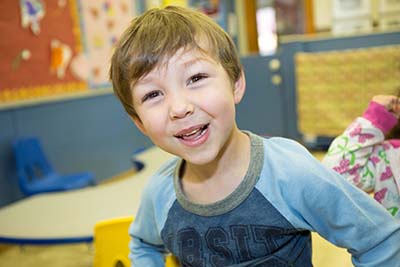“This has been described by our coaches as like the sunshine and the light.”
That’s how Stacy Petty, Director of the Rocky Mountain Early Childhood Council in Glenwood Springs, Colo., opened our recent webinar about LENA Grow’s impact on early childhood educators. She painted a picture of LENA Grow as the bright spot shining through all of the unprecedented stresses facing the profession. We’ve collected some of the highlights from this conversation below.
At LENA, we’ve learned a lot about the effectiveness of LENA Grow. From program evaluations, for instance, we can see its link to higher scores on CLASS and Teaching Strategies GOLD assessments. And from teacher and coach surveys, we can see the bird’s-eye view of what educators think of the program: 99% would recommend it to other teachers, and only 3% know of a program that better promotes professional development in teachers. All of this is summed up in our LENA Grow Overview and Impact report.
Sometimes, what gets lost amid the program evaluations and the qualitative surveys are the voices of individual educators. That’s what this webinar was about.
Strengths-based coaching
We don’t need to enumerate all of the stresses and systemic issues facing early childhood education right now. Suffice it to say that with everything early childhood educators are facing, Stacy points to LENA Grow as a very positive addition. It’s also the thing her coaches are using both to improve their own role and to introduce new teachers to coaching. That’s what makes LENA Grow unique: It doesn’t put any extra burdens on teachers, and it helps teachers come to their own revelations about the relationships they build with the students in their care.
Building teacher buy-in
Teachers were wary initially but quick to buy in to the program’s aims, says Sandy Stolze, a coach with the Marathon County Child Development Agency Head Start (MCCDAHS) organization in Wausau, Wisconsin. They often are. But LENA Grow is designed not to put any extra burdens on teachers. Rather, it’s designed to lend data-driven insights into what they’re already accomplishing in their classrooms.
Building relationships with children
Judy Berdan, a teacher at MCCDAHS, has been a classroom educator for a long time. She knows how to talk, she says, but LENA Grow has helped her learn how to listen. When she started engaging conversationally more with children, really listening to them, she saw behavioral issues go away. “Those behaviors that sometimes caused the chaos in the classroom,” she says, “really kind of went away.”
Active professional development
With LENA Grow, Stacy says, teachers are moving from thinking of themselves as looking after children to engaging with children. And the LENA reports allow them to make these discoveries themselves. The coaches can truly act as guides. For the teacher, it’s active learning.
Creating human connections
Judy speaks powerfully of being intentional about engaging with the children in her care, especially those children with whom, for whatever reason, she initially had a difficult time connecting.
Focusing on equity
LENA Grow reports help teachers better engage with each and every child in their classroom, Stacy says, which in turn helps the children engage in classroom activities. Her closing thought: “It really helps you to know that you’re reaching all children.”
Aligning with other programs
With such a wide range of licensing guidelines, QRIS expectations, classroom assessments, curriculums, child assessments, and professional development credentials to keep up with, interaction is often the common bond. LENA Grow aligns so well with so much, Stacy says.
A program for teachers and children
When teachers like Judy say LENA Grow, a program for educators’ professional development, ultimately serves the children, we believe it.






